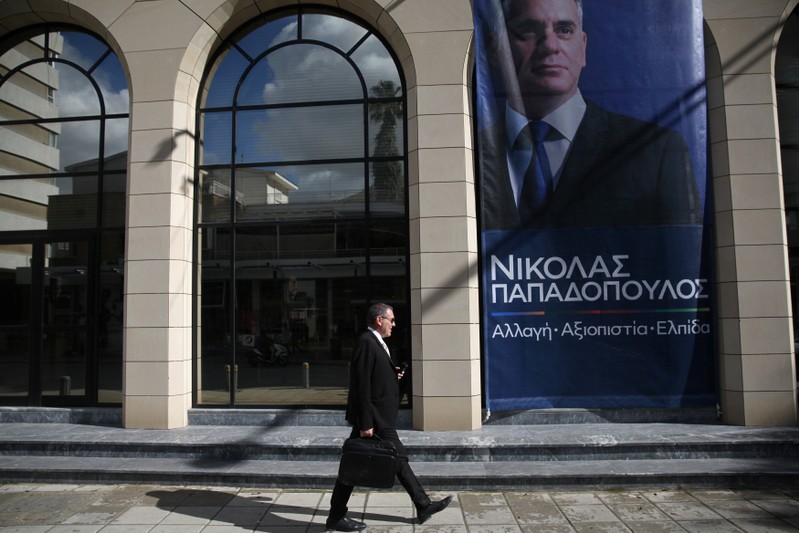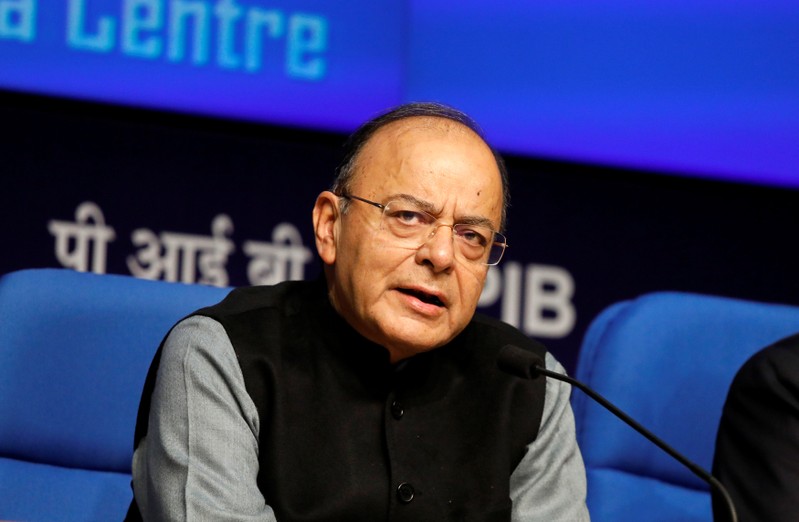
A man walks in front of a pre-election poster of Presidential candidate Nikolas Papadopoulos leader of the center-right DIKO party in Nicosia, Cyprus January 26, 2018. REUTERS/Yiannis Kourtoglou
January 28, 2018
By Michele Kambas
ATHENS (Reuters) – Greek Cypriots were voting on Sunday for a new president tasked with breaking a deadlock in unification talks, ending a conflict that harms Greco-Turkish relations and frustrates Ankara’s ambitions of joining the European Union.
Sunday’s vote is being contested by nine candidates including incumbent conservative Nicos Anastasiades presently leading opinion polls. Barring a major upset, the vote will not produce a clear winner, leading to a runoff on Feb. 4.
Voting started at 7 a.m. (0500 GMT) and would continue until 6 p.m. Final results were due at 8.30 p.m. though clear trends were expected to be known considerably earlier.
Whoever wins will have to find a way to restart peace talks, which collapsed in acrimony in Switzerland in July 2017 over the future role Turkey may play on the island.
Cyprus was split in a Turkish invasion in 1974 after a brief Greek-inspired coup, and the EU member state hosts one of the world’s longest serving peacekeeping forces with Greek Cypriots in the south, and Turkish Cypriots in the north.
Sunday’s vote is likely to be a closely-fought race for second place between Nikolas Papadopoulos, son of the late President Tassos Papadopoulos who led Greek Cypriots into rejecting a United Nations unification blueprint in 2004, and Stavros Malas, a genetics scientist backed by the left-wing AKEL party.
Papadopoulos takes hard line in negotiations and has accused Anastasiades of making too many concessions.
It will be the second time in the ring for Malas, who got through to a runoff which Anastasiades eventually won in 2013. He believes peace negotiations should resume as quickly as possible.
“There is going to be a window of opportunity for talks to resume,” said Spyros Sofos, Research Coordinator at the Center for Middle Eastern Studies at Lund University in Sweden.
“I think the president who will come out of this election is likely to pursue a peace and reunification process,” said Sofos, who added however that getting a public on-side for any deal might get tricky in a referendum to ratify any peace accord.
Just over 550,000 Greek Cypriots have the right to vote.
(Reporting by Michele Kambas Editing by Jeremy Gaunt and Stephen Coates)

